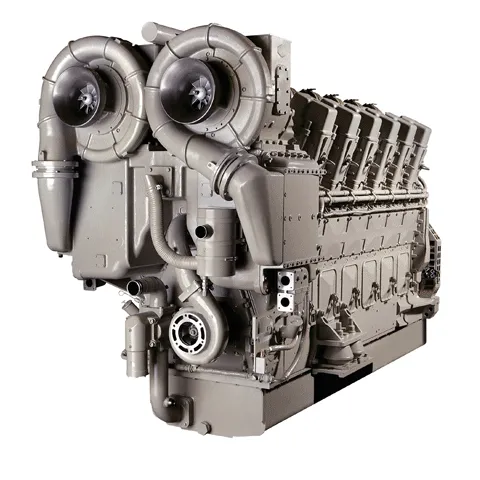A Total Overview to Picking the Right Engine for Your Job
Selecting the proper engine for your task is an essential decision that can considerably influence its general success. It is imperative to diligently define your job requires, examine performance demands, and consider user-friendliness alongside various other vital variables. Additionally, understanding the area assistance readily available and inspecting expense implications can even more improve your option. Each of these components plays an essential duty in making sure that your selected engine not just meets prompt purposes however additionally lines up with lasting goals. As we check out these factors to consider, you may discover that the nuances of each facet expose more than at first anticipated.
Specify Your Task Needs
Defining your task needs is a critical action in picking the appropriate engine for effective application. A detailed understanding of your task's objectives will certainly assist you in identifying the functions and capabilities needed from an engine. Begin by laying out the extent of your project, consisting of the wanted performance, target market, and the certain end results you intend to attain.
Next, consider the technical needs that align with your project goals. This includes evaluating the compatibility of the engine with existing systems, as well as the programming languages and frameworks that will certainly be used. Furthermore, examine the degree of scalability required to suit future development or modifications sought after.
Budget plan constraints additionally play a vital function in specifying your task needs. Develop a clear economic framework to guide your decision-making process, guaranteeing that the engine picked fits within your spending plan while providing the essential functionality.
Evaluate Performance Needs

Next, think about the scalability of the engine. Analyze whether it can deal with boosted work as your task grows. Engines that support horizontal scaling are commonly better for bigger applications. In addition, evaluate the engine's efficiency under various conditions, such as peak use circumstances, to ensure it fulfills your dependability requirements.
Take Into Consideration Convenience of Usage
While technological specs are crucial, the simplicity of use of an engine can considerably impact the development procedure and general job success. An intuitive user interface, clear documents, and structured workflows can considerably decrease the learning contour for developers, allowing them to concentrate on imagination and problem-solving instead of grappling with facility tools.
When assessing an engine's ease of usage, consider the onboarding experience. A well-structured intro, complete with tutorials and example projects, can promote a smoother shift for new customers. In addition, the quality and comprehensiveness of the engine's paperwork play an important duty; detailed overviews and API referrals can empower programmers to repair and execute features effectively.
An engine that permits for easy alterations can be a lot more user-friendly, as developers can customize it to fit their certain demands without substantial trouble. Eventually, choosing an engine that focuses on simplicity of usage can lead to a more effective and pleasurable development experience.
Assess Area and Support
The stamina of an engine's community and assistance network can substantially affect a programmer's experience and success. When analyzing an engine, think about the size and activity level of its neighborhood.
Additionally, assess the schedule of official support networks. Dependable documentation, responsive consumer support, and regular updates are vital for resolving technological concerns and keeping your project on track. Engines For Africa. Active communities likewise promote partnership, offering opportunities for networking and feedback, which can be vital, specifically for tiny teams or independent programmers
Furthermore, explore the existence of community-run occasions, such as meetups or hackathons. These celebrations can enrich your understanding of the engine while connecting you with potential partners and experienced individuals. In recap, a durable community and support system not only enhance growth but also produce an atmosphere for finding out and development, eventually improving the chance of your task's success.
Compare Cost and Licensing Choices
Budget plan factors to consider play an important function in picking the right engine for your task, as the expense and licensing choices can dramatically influence both temporary expenditures and lasting stability. Engines For Africa. Various engines use differing prices frameworks, which can include one-time purchase fees, registration versions, or revenue-sharing arrangements based upon your job's profits

Certifying choices also differ substantially. Some engines are open-source, providing flexibility and community-driven support, look at more info while others might need proprietary licenses that restrict use and distribution. Understanding the effects of each licensing version is important, as it affects possession legal rights, future scalability, and prospective lawful commitments.
Verdict
Finally, selecting the ideal engine for a task necessitates a comprehensive evaluation of specified job needs, efficiency requirements, convenience of use, area support, try this website and cost factors to consider. By systematically resolving these vital elements, decision-makers can make sure alignment with both current and future task needs. A well-informed option inevitably improves the likelihood of job success, enabling efficient source allotment and taking full advantage of potential results within the defined budgetary restrictions.
Picking the ideal engine for your job is a critical decision that can dramatically impact its general success.Specifying your project needs is a vital step in picking the appropriate engine for successful execution. A comprehensive understanding of your job's goals will certainly guide you in identifying the functions and more info here capacities required from an engine.When you have a clear understanding of your job requires, the following action is to review the efficiency requirements of the engine.In conclusion, choosing the suitable engine for a job requires a detailed evaluation of defined project needs, performance requirements, ease of use, community support, and cost considerations.